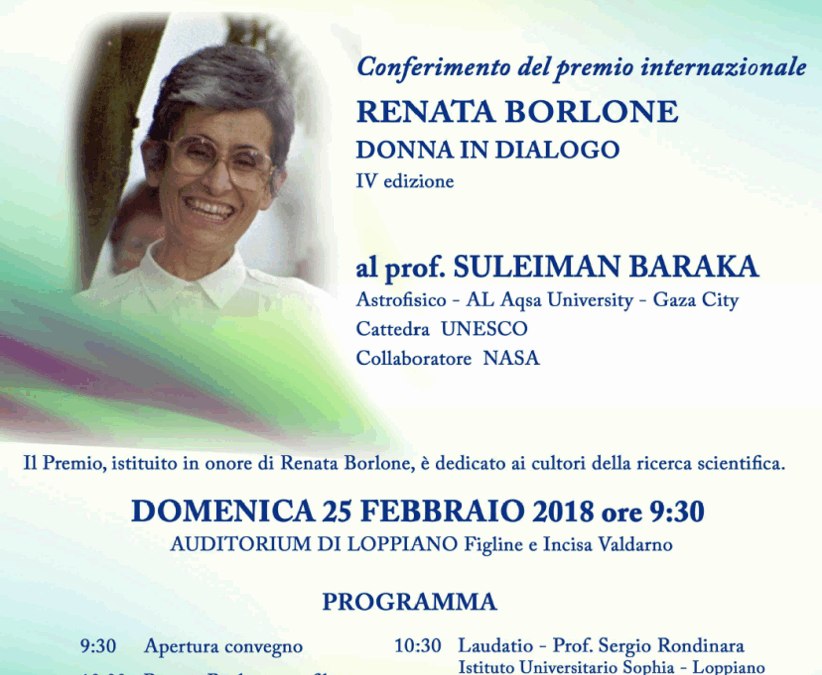
Feb 23, 2018 | Non categorizzato
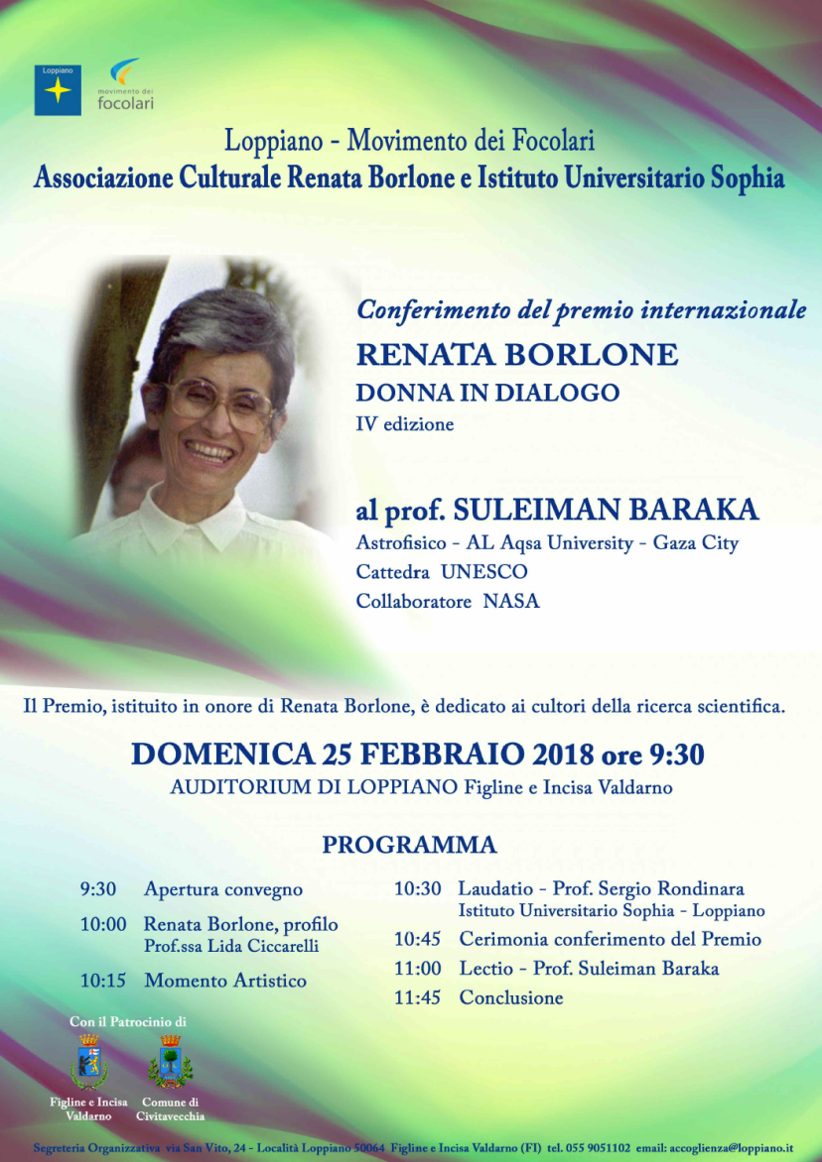 The “Renata Borlone Prize” will be awarded to Prof. Suleiman Baraka, a native of Gaza and an internationally renowned astrophysicist on Sunday 25 February, in the Auditorium of the International Centre of Loppiano (Florence), in the presence of the representatives of the scientific world and civil authorities. Now on its 4th edition, the Prize was instituted by the Cultural Association bearing the same name, to honour the memory of Renata Borlone (1930-1990), who for over 20 years was co-director of the town of Loppiano and is now a Servant of God. Full of human and spiritual values, Renata nurtured a special passion for science, intended as the privileged tool for the construction of unity of the human family. The Prize’s Scientific Committee conferred this recognition to Prof. Baraka for “his scientific research which focuses on human values and peace”. The awardee stated “This prize in honour of Renata Borlone who worked for the good of society – is a further incentive and encouragement to place science and its beauty at the service of humanity, promote peace among peoples, and enable the young generations to open their horizons to hope, despite the difficulties and obstacles they may have to face.”
The “Renata Borlone Prize” will be awarded to Prof. Suleiman Baraka, a native of Gaza and an internationally renowned astrophysicist on Sunday 25 February, in the Auditorium of the International Centre of Loppiano (Florence), in the presence of the representatives of the scientific world and civil authorities. Now on its 4th edition, the Prize was instituted by the Cultural Association bearing the same name, to honour the memory of Renata Borlone (1930-1990), who for over 20 years was co-director of the town of Loppiano and is now a Servant of God. Full of human and spiritual values, Renata nurtured a special passion for science, intended as the privileged tool for the construction of unity of the human family. The Prize’s Scientific Committee conferred this recognition to Prof. Baraka for “his scientific research which focuses on human values and peace”. The awardee stated “This prize in honour of Renata Borlone who worked for the good of society – is a further incentive and encouragement to place science and its beauty at the service of humanity, promote peace among peoples, and enable the young generations to open their horizons to hope, despite the difficulties and obstacles they may have to face.”
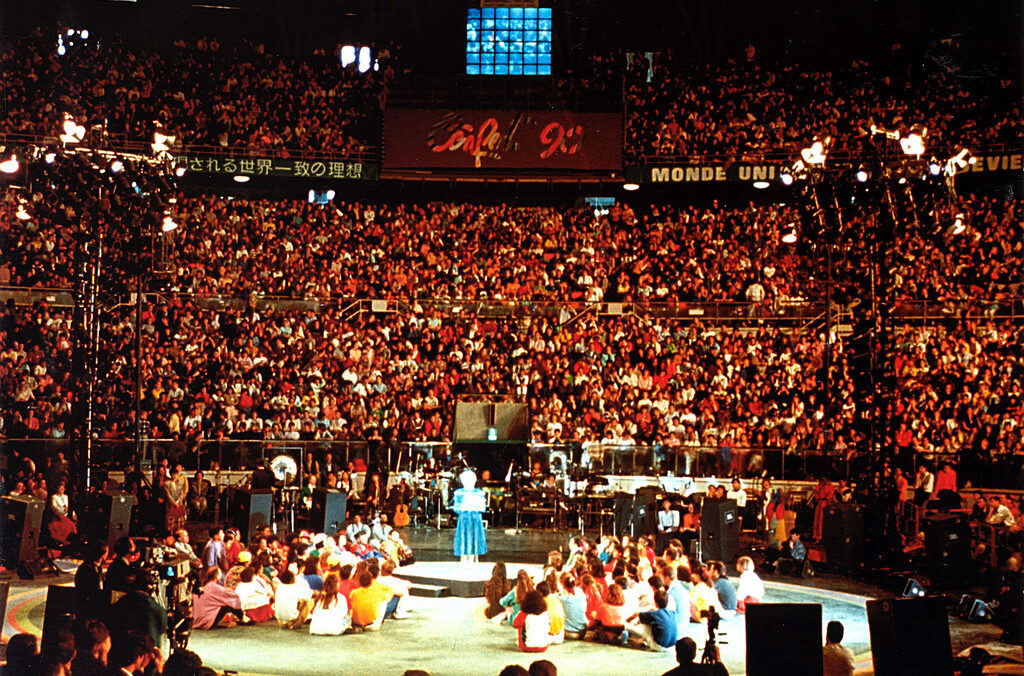
Feb 23, 2018 | Non categorizzato
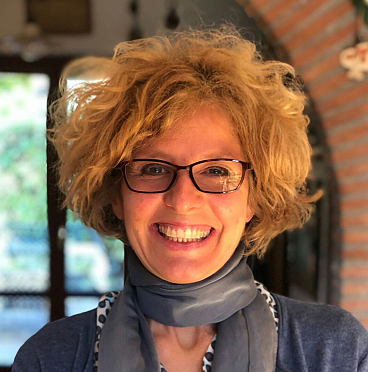
Chiara Favotti
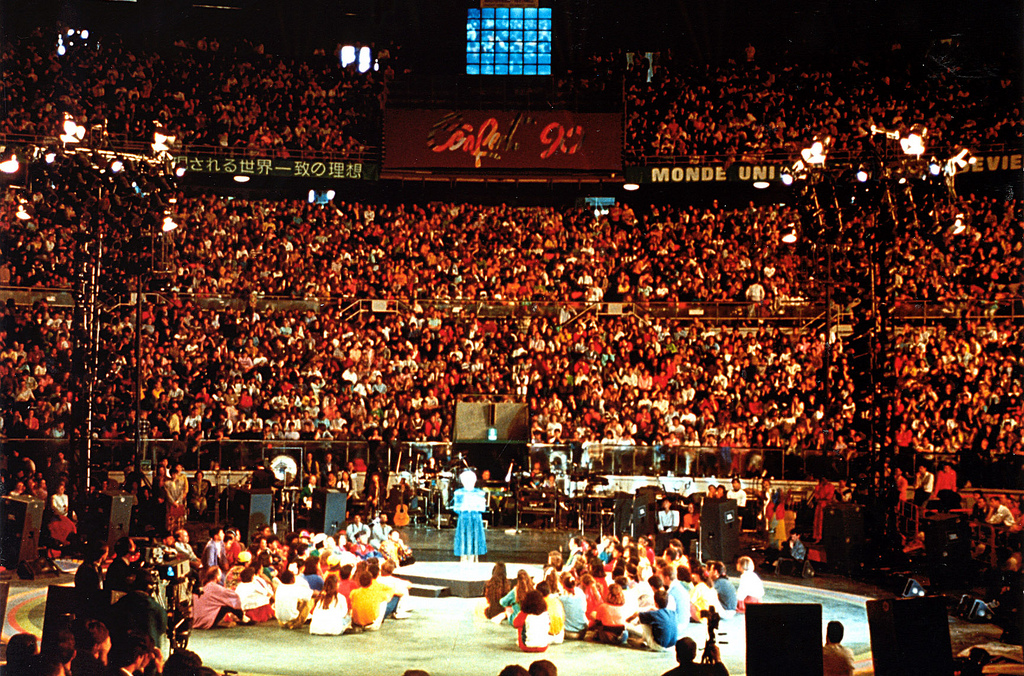 During adolescence, going with the Gen and the young people from the united world project, and the any experiences we shared, opened my heart far beyond the walls I knew. It made me hope and think big, of a truly united world. It wasn’t a fantasy, but a new way of thinking, of moving in a new direction, taking little steps, but made of real and authentic brotherhood. I took part in the 1990 Genfest with them. It was an unforgettable experience. For the first time, there was an explosion of happiness, young people from east and west looked in each other’s eyes and squeezed each other’s hands as television cameras broadcasted the scene in the Paleur Stadium to millions of television viewers around the world. We were given a mandate: to bring love back into the world. “Friendship and kindness aren’t enough,” said Chiara Lubich. “Philanthropy isn’t enough, neither are solidarity or non-violence. We have to change from being people focused on their own small interests, to being small daily heroes who are at the loving service of their brothers and sisters in every neighbor.” The next year I left for Moscow. The iron wall that separated East and West may have fallen, but at a great price, pulverizing ideals and an entire social system. There were no winners, nor losers, only the disillusioned, suffering and widespread poverty. It was clear to me: It’s not enough to bring down a wall to create a free and just society. Now, those words that I heard at the Genfest are the only way forward for me: “Only in harmony with each other and forgiveness toward each other can you build a real future.”
During adolescence, going with the Gen and the young people from the united world project, and the any experiences we shared, opened my heart far beyond the walls I knew. It made me hope and think big, of a truly united world. It wasn’t a fantasy, but a new way of thinking, of moving in a new direction, taking little steps, but made of real and authentic brotherhood. I took part in the 1990 Genfest with them. It was an unforgettable experience. For the first time, there was an explosion of happiness, young people from east and west looked in each other’s eyes and squeezed each other’s hands as television cameras broadcasted the scene in the Paleur Stadium to millions of television viewers around the world. We were given a mandate: to bring love back into the world. “Friendship and kindness aren’t enough,” said Chiara Lubich. “Philanthropy isn’t enough, neither are solidarity or non-violence. We have to change from being people focused on their own small interests, to being small daily heroes who are at the loving service of their brothers and sisters in every neighbor.” The next year I left for Moscow. The iron wall that separated East and West may have fallen, but at a great price, pulverizing ideals and an entire social system. There were no winners, nor losers, only the disillusioned, suffering and widespread poverty. It was clear to me: It’s not enough to bring down a wall to create a free and just society. Now, those words that I heard at the Genfest are the only way forward for me: “Only in harmony with each other and forgiveness toward each other can you build a real future.”
Chiara Favotti
Feb 22, 2018 | Non categorizzato
At the mechanic’s I had brought my car to the mechanic’s for a small repair. The young mechanic said he would call me when it was ready. After six hours, no phone call came. I went to the workshop and strangely he pretended not to remember the job to be done and went on to serve other clients. After waiting for an hour he returned with the bill. It was exorbitant for such a small job. Being black, I felt this was evidently an act of discrimination. I paid, but anger and sharp pain got hold of me. When I was about to explode, I stopped to think and wonder how I could live the Gospel in a moment like this. I calmed down and patiently explained the facts to the person in charge. He listened to me and got the message, and ordered a reimbursement. That reimbursement seemed to me like the fulfilment of the promises of the Gospel. Welile – South Africa
Hunger and thirst for justice I was a revolutionary, and hungered and thirsted for justice and I said it in a loud voice, everywhere I went. At a certain point I found an answer in God, and for him, I left everything. One day I was asked to speak in a factory, but now there was a difference: it was no longer I but Jesus who spoke through me, because I tried to find love in my brothers. Looking at all those restless faces on the revolt, thirsty for justice, I got the confirmation that only love can achieve the miracle of changing people, their ideas, and the structures. This love is God in us and among us. Maria Teresa – Brazil Change of plans With my husband’s consent, I thought of enrolling in a course that would have been useful for my work. I was enthusiastic, because I saw that slowly the difficulties smoothed out and all seemed to confirm that I was on the right road. I had started to gather the necessary documents when I discovered I was pregnant, and this confused me. I would have wanted to set aside my project for some time. Upon reading the Gospel with my husband, we understood that God had other plans for us and we prepared to welcome the baby with joy. D.T.B. – Croatia The trump card I am a sales agent. One day I entered the office of a big company to present my products to the head of the purchasing office. Since he showed very little interest, I prepared to leave his office. But during that brief meeting I noticed that I was dealing with a person in suffering. I was already at the door when I felt I had to go back and simply asked: “Are you sure you’re feeling ok?” Wide eyed he asked me: “Why are you asking this?” I answered that I just had that sensation, greeted him again and left. The next day, I received a phone call from him. “I want to thank you, because after you left, your question rang in my mind. So that evening I went to my doctor who confirmed that I could have collapsed at any minute and there was immediate need to intervene with a strong therapy.” That same day, the company made a big order. So I not only found a big client, but had also helped a person to feel better. Putting love before all else in our actions is always the trump card. From Focolare website www.flest.it – Italy
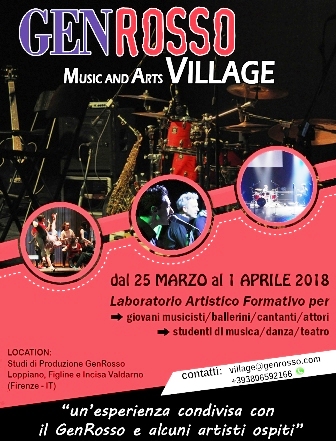
Feb 21, 2018 | Non categorizzato
 The GEN ROSSO (INTERNATIONAL PERFORMING ARTS GROUP) is presenting the 1st edition of the Gen Rosso Music and Arts Village, a residential in-depth artistic experience with the sharing of values in the light of the charism of unity. The project addresses young professionals and students preferably from 18 to 30 years of age, in disciplines such as music, dance, singing and theatre. The didactic method is designed and handled by Gen Rosso tutors having the qualified artistic capacities and experience. The program will include the study of specific themes. Exchange of experiences, dialogue sessions and practical labs will be exhibited in a final performance. The evening sessions will be enriched with interesting artistic contributions. The first edition of the Village will take place from 25 March (arrivals in the afternoon) to 1 April 2018. A participation certificate will be issued at the conclusion. Gen Rosso, through the Village secretariat, is at everyone’s disposal for further information and all the documentation needed for enrolment. (limited number). Contacts Secreteriat VILLAGE: +39 0558339821 (9.00-13.00, Italian time) Franco Gallelli cell +39 3806592166 Email secretariat VILLAGE: village@genrosso.com
The GEN ROSSO (INTERNATIONAL PERFORMING ARTS GROUP) is presenting the 1st edition of the Gen Rosso Music and Arts Village, a residential in-depth artistic experience with the sharing of values in the light of the charism of unity. The project addresses young professionals and students preferably from 18 to 30 years of age, in disciplines such as music, dance, singing and theatre. The didactic method is designed and handled by Gen Rosso tutors having the qualified artistic capacities and experience. The program will include the study of specific themes. Exchange of experiences, dialogue sessions and practical labs will be exhibited in a final performance. The evening sessions will be enriched with interesting artistic contributions. The first edition of the Village will take place from 25 March (arrivals in the afternoon) to 1 April 2018. A participation certificate will be issued at the conclusion. Gen Rosso, through the Village secretariat, is at everyone’s disposal for further information and all the documentation needed for enrolment. (limited number). Contacts Secreteriat VILLAGE: +39 0558339821 (9.00-13.00, Italian time) Franco Gallelli cell +39 3806592166 Email secretariat VILLAGE: village@genrosso.com
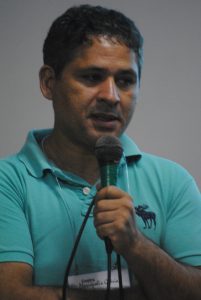
Feb 21, 2018 | Focolare Worldwide
 Guaramiranga, with 7,000 inhabitants, is a small city of the Northeastern state of Ceará in Brazil, which boasts a highly diversified natural environment at the Atlantic coast where there are also the most beautiful beaches in the world, and with an interior full of lagoons, and water courses populated by mangroves, jungles and forests. About 100 kilometers from the coast, it is the seat of two important cultural events: the international “Jazz and Blues” and the more local “Northeastern Theatre Festival.” Here lives Almir, a “volunteer of God” of the Focolare Movement. Some years ago, pushed by the desire to do something for his city, he decided to run for the post of Town Councilor. After his election he was asked to assume the councillorship for Culture and Tourism, an important role since most of the city’s economy rotates around tourism, cultural events and exhibitions. The role is very challenging and above all, Almir is full of ideas. However, it was not an easy choice: “I lengthily pondered on the mayor’s request to assume this position. In fact I was thinking of running again, since after a year and a half there would be a reshuffling of the town council, and I doubted that the proposal aimed at limiting me politically, due to my ideas in advocating clarity and transparency. On the other hand, the area of culture and tourism was undergoing a difficult moment: many small hotels and shops were about to close and the personnel would have been fired. I felt the suffering of those brothers who could have lost their jobs, and of the owners who would have had to close ship. So after talking with some friends, I accepted the challenge.” Almir started to work on the new assignment with passion, mobilising the entrepreneurs and inhabitants. He launched a participation course with some citizens, involving them in the promotion of touristic events to give a new impulse to the city and boost the economy’s upturn. Also the inhabitants of the rural districts were involved in a project for the upholding of local traditions with new cultural initiatives in the territory. In short, the city saw the growth of touristic flows, the birth of new businesses, hotels and hostels and the creation of new jobs. “Other two challenges” – Almir explained – “were the relaunching of the Town Theatre in the city’s historical centre, and the revival of the Food Court, the square dedicated to restaurants. In this case, the difficult rapports between the restaurant owners negatively influenced the events held in the city. I asked myself how we could go about creating relationships of fraternity and collaboration in that place. I started by going to visit them, creating friendly relations with each of them, and trying to understand the problems and smoothing out the tensions. At first I found a lot of resistance, but I didn’t give up. In the end, I was able to build a “team,” to such a point that today these people have become friends and cooperate with one another. It seemed like a miracle to see these businessmen, who were enemies at first, relate with each other in a friendly and supportive way.” «Today, due to family issues, I am no longer involved in the public administration, but I participate in the political life with the conviction that in trying to concretise the words of the Gospel, we can find the strength to meet the necessities of one’s people and one’s own community.” Chiara Favotti Source: Movimento dos Focolares Brasil (our translation)
Guaramiranga, with 7,000 inhabitants, is a small city of the Northeastern state of Ceará in Brazil, which boasts a highly diversified natural environment at the Atlantic coast where there are also the most beautiful beaches in the world, and with an interior full of lagoons, and water courses populated by mangroves, jungles and forests. About 100 kilometers from the coast, it is the seat of two important cultural events: the international “Jazz and Blues” and the more local “Northeastern Theatre Festival.” Here lives Almir, a “volunteer of God” of the Focolare Movement. Some years ago, pushed by the desire to do something for his city, he decided to run for the post of Town Councilor. After his election he was asked to assume the councillorship for Culture and Tourism, an important role since most of the city’s economy rotates around tourism, cultural events and exhibitions. The role is very challenging and above all, Almir is full of ideas. However, it was not an easy choice: “I lengthily pondered on the mayor’s request to assume this position. In fact I was thinking of running again, since after a year and a half there would be a reshuffling of the town council, and I doubted that the proposal aimed at limiting me politically, due to my ideas in advocating clarity and transparency. On the other hand, the area of culture and tourism was undergoing a difficult moment: many small hotels and shops were about to close and the personnel would have been fired. I felt the suffering of those brothers who could have lost their jobs, and of the owners who would have had to close ship. So after talking with some friends, I accepted the challenge.” Almir started to work on the new assignment with passion, mobilising the entrepreneurs and inhabitants. He launched a participation course with some citizens, involving them in the promotion of touristic events to give a new impulse to the city and boost the economy’s upturn. Also the inhabitants of the rural districts were involved in a project for the upholding of local traditions with new cultural initiatives in the territory. In short, the city saw the growth of touristic flows, the birth of new businesses, hotels and hostels and the creation of new jobs. “Other two challenges” – Almir explained – “were the relaunching of the Town Theatre in the city’s historical centre, and the revival of the Food Court, the square dedicated to restaurants. In this case, the difficult rapports between the restaurant owners negatively influenced the events held in the city. I asked myself how we could go about creating relationships of fraternity and collaboration in that place. I started by going to visit them, creating friendly relations with each of them, and trying to understand the problems and smoothing out the tensions. At first I found a lot of resistance, but I didn’t give up. In the end, I was able to build a “team,” to such a point that today these people have become friends and cooperate with one another. It seemed like a miracle to see these businessmen, who were enemies at first, relate with each other in a friendly and supportive way.” «Today, due to family issues, I am no longer involved in the public administration, but I participate in the political life with the conviction that in trying to concretise the words of the Gospel, we can find the strength to meet the necessities of one’s people and one’s own community.” Chiara Favotti Source: Movimento dos Focolares Brasil (our translation)
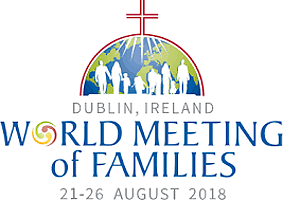
Feb 21, 2018 | Focolare Worldwide
 In preparation for the 9th World Meeting of Families, the Pontifical Council for the Laity, Family and Life has published seven catecheses which are available on its site in five languages (English, Spanish, French, Italian and Portuguese). The meeting will take place in Dublin from 20-26 August 2018. Card. Kevin Farrell, Prefect of the Council defined the catechesis as “A catechetical program in the light of what Pope Francis donated to the entire world with the post-synodal Apostolic Exhortation Amoris laetitia.” The themes to be presented are: “Families today,” “Families in the light of the Word of God,” “God’s great dream,” “The culture of life,” “The culture of hope” and “The culture of joy.” Card. Farrell explained: “Each catechesis is introduced by some prayers drawn from the pontifical magisterium or from patristic tradition, and concludes with the requests for a moment of sharing that starts from the family, the first domestic Church, to then extend to the Christian community.” The catecheses are accompanied by a musical itinerary sung by the renowned Italian singer, Andrea Bocelli, in a concert at the Sagrada Familia Basilica of Barcelona in May 2015, and is the first of a series of repeated concerts within the ambit of the project entitled “The Great Mystery. The Gospel of the Family, School of Humanity for Our Time,” and also in the shrine of St John Paul II in Cracow, and in the St. Stephen Basilica in Budapest. (www.laityfamilylife.va/)
In preparation for the 9th World Meeting of Families, the Pontifical Council for the Laity, Family and Life has published seven catecheses which are available on its site in five languages (English, Spanish, French, Italian and Portuguese). The meeting will take place in Dublin from 20-26 August 2018. Card. Kevin Farrell, Prefect of the Council defined the catechesis as “A catechetical program in the light of what Pope Francis donated to the entire world with the post-synodal Apostolic Exhortation Amoris laetitia.” The themes to be presented are: “Families today,” “Families in the light of the Word of God,” “God’s great dream,” “The culture of life,” “The culture of hope” and “The culture of joy.” Card. Farrell explained: “Each catechesis is introduced by some prayers drawn from the pontifical magisterium or from patristic tradition, and concludes with the requests for a moment of sharing that starts from the family, the first domestic Church, to then extend to the Christian community.” The catecheses are accompanied by a musical itinerary sung by the renowned Italian singer, Andrea Bocelli, in a concert at the Sagrada Familia Basilica of Barcelona in May 2015, and is the first of a series of repeated concerts within the ambit of the project entitled “The Great Mystery. The Gospel of the Family, School of Humanity for Our Time,” and also in the shrine of St John Paul II in Cracow, and in the St. Stephen Basilica in Budapest. (www.laityfamilylife.va/)
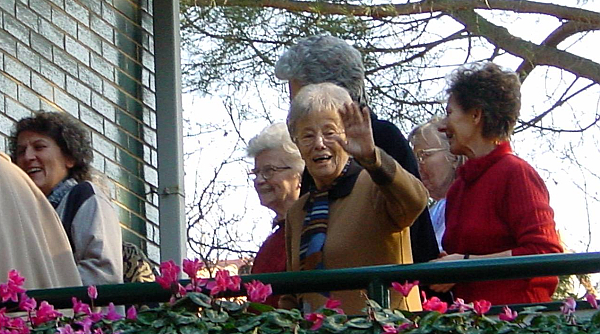
Feb 20, 2018 | Non categorizzato
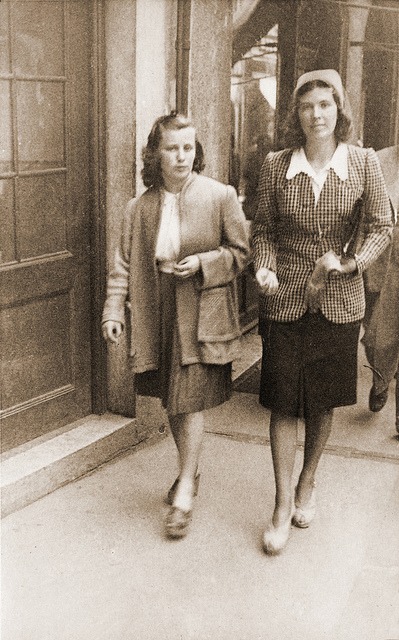
Gis and Ginetta
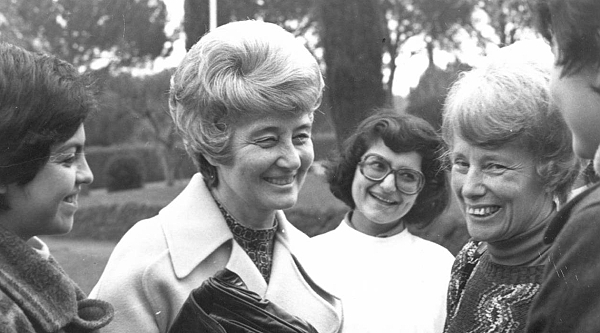 When the war ended Gis and Ginetta asked their mother to let them live in the focolare. Ginetta got permission, but the little one no. She didn’t give up: she knew that her decision was final and it would only be a matter of time. The solution was found by Igino Giordani who, knowing Mamma Calliari to be one of his passionate readers, offered Gis a job in Rome. On December 6, 1949, the mother was happy to opt for Giordani. She let Gis leave for Rome, oblivious to the fact that besides being the judges secretary, she would open the first focolare at the capital of Italy with Chiara and others. From then on Gis lived at Chiara’s side with a few short interruptions to start up focolares in several places around Italy. Speaking of those 25 years with Chiara, in 2005 she confided: “It’s very simple, limpid, profound: all that is hers is mine, all that is mine is hers.” It was a remark that fully represented who Chiara was for everyone in her focolare: “Philadelphia is more than a reality,” says Chiara. “It’s here where I take strength to face the daily crosses (after the personal union with Jesus). Here you go from Divine Wisdom that’s shared spontaneously, to practical advice on health, a dress, the house, the food; to constant little helps, every day, with sacrifices that could never be counted. Here […] The blood that flows between us is of a home, but a heavenly home.”
When the war ended Gis and Ginetta asked their mother to let them live in the focolare. Ginetta got permission, but the little one no. She didn’t give up: she knew that her decision was final and it would only be a matter of time. The solution was found by Igino Giordani who, knowing Mamma Calliari to be one of his passionate readers, offered Gis a job in Rome. On December 6, 1949, the mother was happy to opt for Giordani. She let Gis leave for Rome, oblivious to the fact that besides being the judges secretary, she would open the first focolare at the capital of Italy with Chiara and others. From then on Gis lived at Chiara’s side with a few short interruptions to start up focolares in several places around Italy. Speaking of those 25 years with Chiara, in 2005 she confided: “It’s very simple, limpid, profound: all that is hers is mine, all that is mine is hers.” It was a remark that fully represented who Chiara was for everyone in her focolare: “Philadelphia is more than a reality,” says Chiara. “It’s here where I take strength to face the daily crosses (after the personal union with Jesus). Here you go from Divine Wisdom that’s shared spontaneously, to practical advice on health, a dress, the house, the food; to constant little helps, every day, with sacrifices that could never be counted. Here […] The blood that flows between us is of a home, but a heavenly home.”  “In her office,” Gabri Fallacara recalls, “she telephoned everybody, building a network of love, incisive, open and understanding. With absolute trust she placed herself in the most favorable conditions for discerning what the charism of unity asked, day after day, of Chiara and of us.” Following Chiara’s death Gis continued living for everyone, in spite of her failing capacities, she was a gushing fountain of tenderness and affection. In July 2017 her worsening health transformed her room into a crossroads of heavenly encounters. On January 2018, Gis peacefully left this world. “Right to the end she continued to give of herself in order to make Chiara continue to live in the Movement today. She gave me a big lesson of simplicity, radicality, trust in God’s plan and unity with all.”
“In her office,” Gabri Fallacara recalls, “she telephoned everybody, building a network of love, incisive, open and understanding. With absolute trust she placed herself in the most favorable conditions for discerning what the charism of unity asked, day after day, of Chiara and of us.” Following Chiara’s death Gis continued living for everyone, in spite of her failing capacities, she was a gushing fountain of tenderness and affection. In July 2017 her worsening health transformed her room into a crossroads of heavenly encounters. On January 2018, Gis peacefully left this world. “Right to the end she continued to give of herself in order to make Chiara continue to live in the Movement today. She gave me a big lesson of simplicity, radicality, trust in God’s plan and unity with all.”
Feb 20, 2018 | Non categorizzato
In remembrance of persecuted Christians around the world, on Saturday 24th of February the Help to the Suffering Church (ACS) will colour the Roman Colosseum red. In the same context, two other symbols of the recent persecutions of Christians will be painted the same colour: St Paul Cathedral in Mosul, Iraq, and the Maronite Church of St Elia in Aleppo, Syria. After the Trevi Fountain lit up in red on April 29, 2016, ACS returns again to offer this “sober provocation” in the capital, as the director of ACS-Italia, Alessandro Monteduro explained during the press conference held for the event. The main event will be held in Rome, in Largo Gaetana Agnesi, starting at 6 pm. The general secretary of the Italian Bishops’ Conference, Mgr. Nunzio Galantino, and the president of the European Parliament, Antonio Tajani confirmed that they will be present. Source: SIR
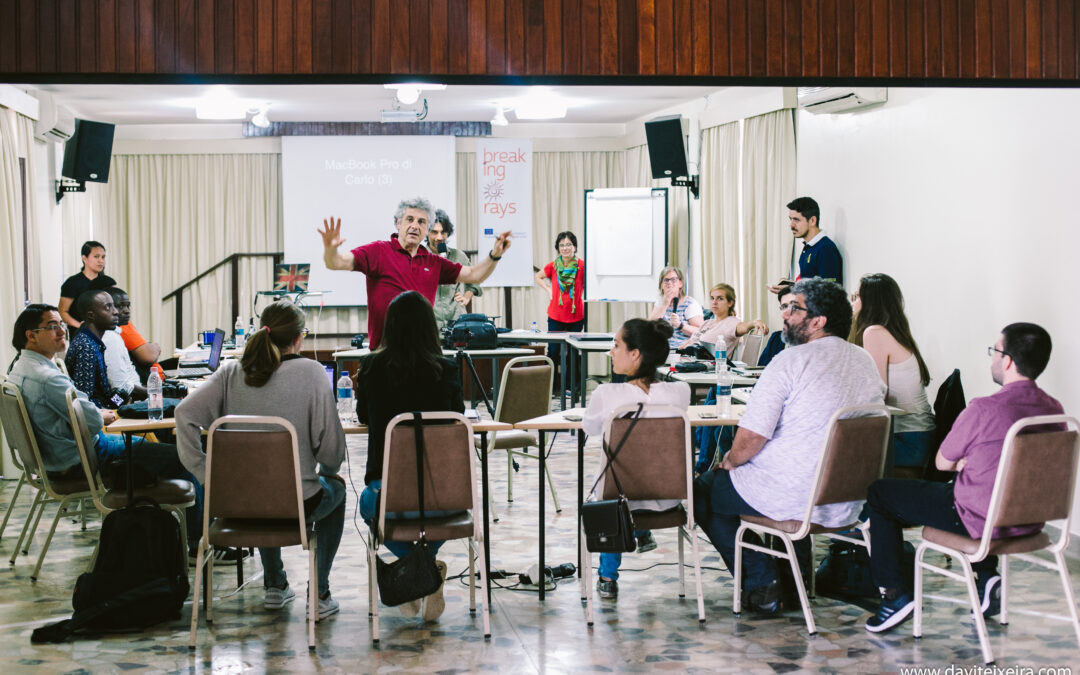
Feb 19, 2018 | Focolare Worldwide
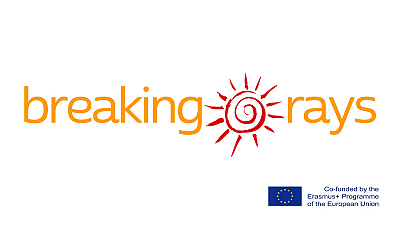 “Breaking Rays” is a play on the words “Breaking News” which are used to describe the interruption of some latest sensational news story. The sensational news this time was a project for the promotion of fraternity and a group of young communication workers who, with passion and skill, are stepping up to produce some maximum results. Breaking Rays aims at building an international network where experiences inspired by the charism of the Focolare Movement can come out of isolation and “break” onto the global scene, creating a widespread domino effect in other communities. Co-financed by the European Comission through the Erasmus+ and promoted by the international New Humanity Association in collaboration with CSC Audiovisual Centre, Italy, and other NGOs, the project is for young filmmakers and collaborators of the bi-monthly telephone CH Link-Up with news of the Focolare Community around the world. They already got through the first and second stages in Castelgandolfo, Italy, last July; and at Mariapolis Ginetta in San Paolo, Brazil on February 3-10. The next and final stage will take place concurrently with the Genfest, July 2018 in Manila, Philippines.
“Breaking Rays” is a play on the words “Breaking News” which are used to describe the interruption of some latest sensational news story. The sensational news this time was a project for the promotion of fraternity and a group of young communication workers who, with passion and skill, are stepping up to produce some maximum results. Breaking Rays aims at building an international network where experiences inspired by the charism of the Focolare Movement can come out of isolation and “break” onto the global scene, creating a widespread domino effect in other communities. Co-financed by the European Comission through the Erasmus+ and promoted by the international New Humanity Association in collaboration with CSC Audiovisual Centre, Italy, and other NGOs, the project is for young filmmakers and collaborators of the bi-monthly telephone CH Link-Up with news of the Focolare Community around the world. They already got through the first and second stages in Castelgandolfo, Italy, last July; and at Mariapolis Ginetta in San Paolo, Brazil on February 3-10. The next and final stage will take place concurrently with the Genfest, July 2018 in Manila, Philippines. 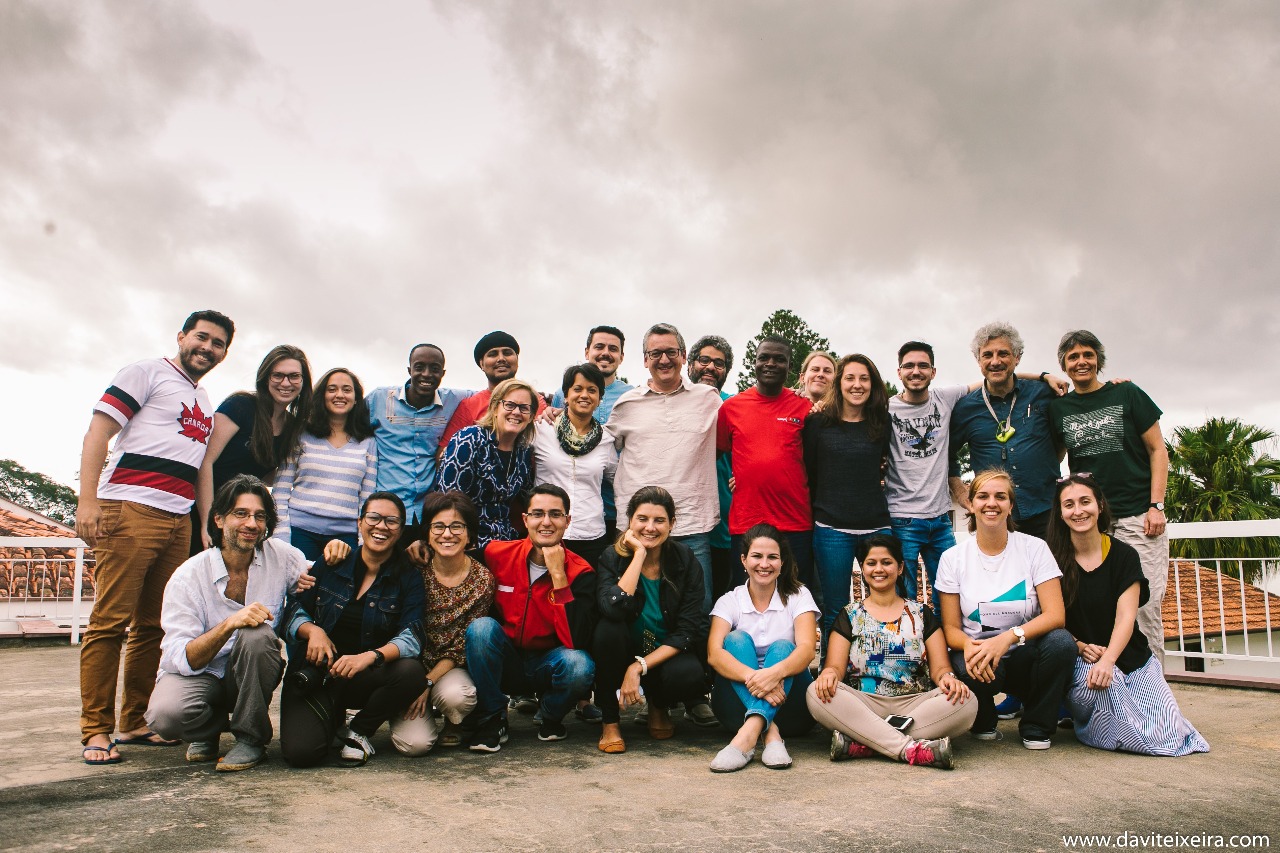 Twenty young people from different countries (Brazil, Italy Hungary, Indonesia, Philippines, India, Kenya and Burundi) have already arrived in Mariapolis Ginetta with a variety of skills, to be coordinated by professional tutors: Italian film director from RAI-TV, director of photography, Carlo Sgambato, project director, Kim Rowley from CSC audio-visuals, along with Isabela Reis, producer and curator of cultural audio-visual projects. With them there is also Paolo Cipollone from CSV Audiovisuals and coordinator of the project. Theoretical and practical training, along with experimenting with new techniques will alternate with work and a common life that will support a communion of talents and openness to constructive criticism. The group has made several visits to social projects of the region, making videos and interviewing. During other sessions, several experts in the field of communications (dreicting, television and radio journalism) have told their own experience and answered questions from the participants.
Twenty young people from different countries (Brazil, Italy Hungary, Indonesia, Philippines, India, Kenya and Burundi) have already arrived in Mariapolis Ginetta with a variety of skills, to be coordinated by professional tutors: Italian film director from RAI-TV, director of photography, Carlo Sgambato, project director, Kim Rowley from CSC audio-visuals, along with Isabela Reis, producer and curator of cultural audio-visual projects. With them there is also Paolo Cipollone from CSV Audiovisuals and coordinator of the project. Theoretical and practical training, along with experimenting with new techniques will alternate with work and a common life that will support a communion of talents and openness to constructive criticism. The group has made several visits to social projects of the region, making videos and interviewing. During other sessions, several experts in the field of communications (dreicting, television and radio journalism) have told their own experience and answered questions from the participants. 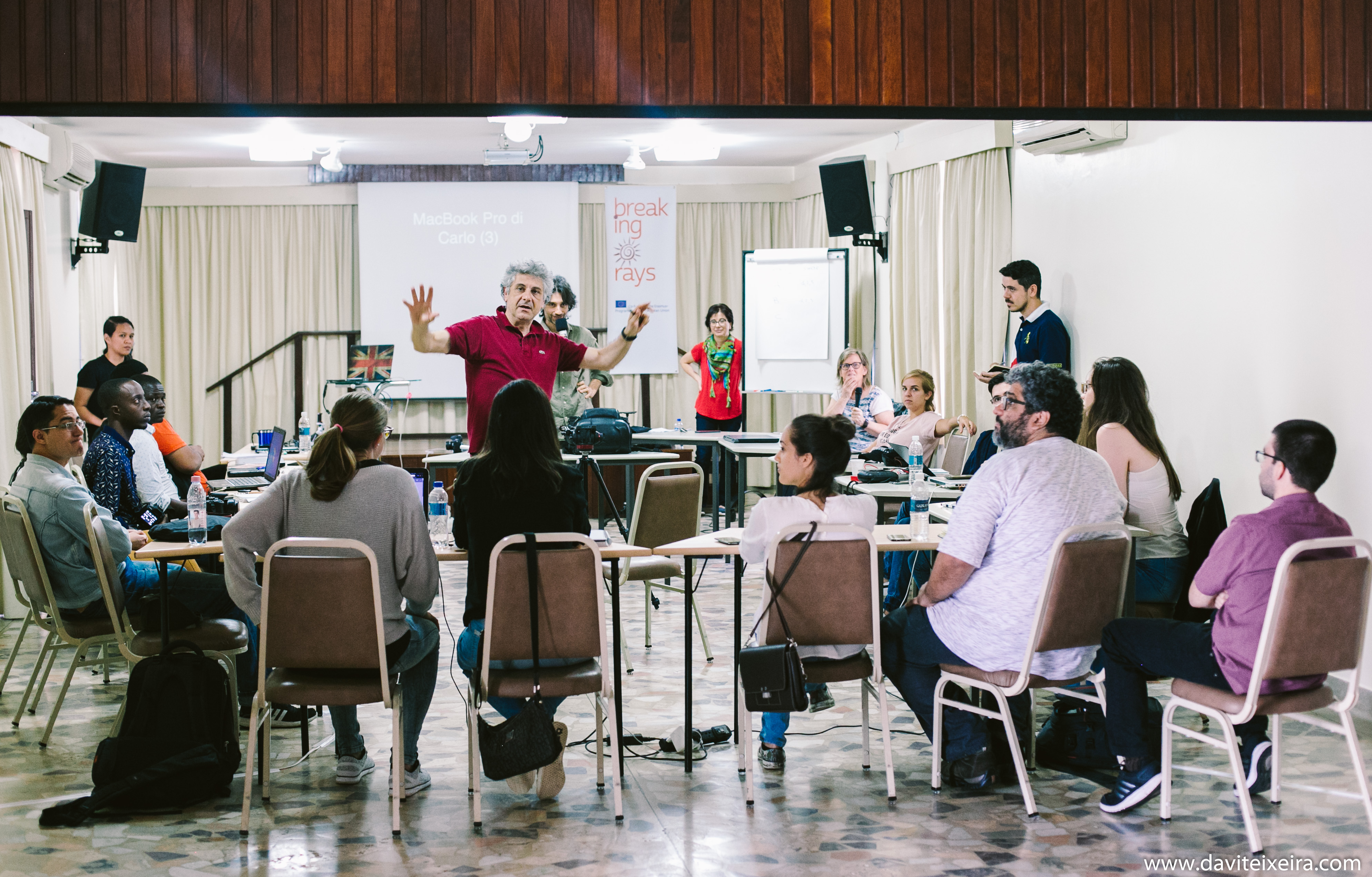 A unique experience in which to learn and go deeper into the profession of a journalist from a new perspective,” said Lewis from Burundi. “More than a course on film-making, powerful stories shared about how to make a better world,” said Donald from India. The team and experts helped me to develop an eye for detail and how to shatter stereotypes and cultural cliches, using audiovisuals.” Full-time tutor Isabela Reis from Brazil explains: “I think it’s a project we can be proud of. It was a strong experience that engaged us for eight days. It was useful for improving the ability to communicate among the young people. It was also important to discuss the various ways of taking advantage of the possibilities offered by technology.” Rafael from Brazil has been in Manila for several months helping to prepare the Genfest: “An important step towards Manila. It was beautiful to spend a whole week in contact with such incredible professionals. Their videos spread hope.” Kyle Venturillo from the Philippines: “We come from different parts of the world. We have different languages, cultures and personalities. In spite of this, we were able to establish a relationship of openness among us, which turned us into a family. We’re a group of people “a bit folly,” with different thoughts and perspectives, but with one main objective: to make this world more united.” Other participants in the project included: Starkmacher, Germany, Opus Mariae, Kenya, Focolare Ireland,, UJ Varos, Hungary, Pag-asa, Philippines, Civitas, Brazil, Focolare Society Bombay, India and YayasanDuniaBersatu, Indonesia. Chiara Favotti
A unique experience in which to learn and go deeper into the profession of a journalist from a new perspective,” said Lewis from Burundi. “More than a course on film-making, powerful stories shared about how to make a better world,” said Donald from India. The team and experts helped me to develop an eye for detail and how to shatter stereotypes and cultural cliches, using audiovisuals.” Full-time tutor Isabela Reis from Brazil explains: “I think it’s a project we can be proud of. It was a strong experience that engaged us for eight days. It was useful for improving the ability to communicate among the young people. It was also important to discuss the various ways of taking advantage of the possibilities offered by technology.” Rafael from Brazil has been in Manila for several months helping to prepare the Genfest: “An important step towards Manila. It was beautiful to spend a whole week in contact with such incredible professionals. Their videos spread hope.” Kyle Venturillo from the Philippines: “We come from different parts of the world. We have different languages, cultures and personalities. In spite of this, we were able to establish a relationship of openness among us, which turned us into a family. We’re a group of people “a bit folly,” with different thoughts and perspectives, but with one main objective: to make this world more united.” Other participants in the project included: Starkmacher, Germany, Opus Mariae, Kenya, Focolare Ireland,, UJ Varos, Hungary, Pag-asa, Philippines, Civitas, Brazil, Focolare Society Bombay, India and YayasanDuniaBersatu, Indonesia. Chiara Favotti
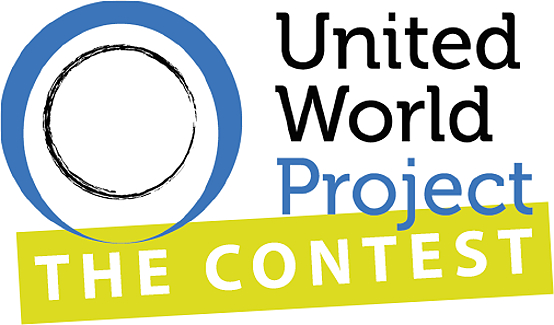
Feb 17, 2018 | Non categorizzato
 Since the deadline is set for 1 March, there is still time to participate in the #FraterniTALES contest organised by the United World Project, and become “United World Ambassadors.” The Ambassadors selected will cooperate with UNESCO’s National Commissions in the presentation of the good practices promoted during the United World Week in their respective countries. “Besides promoting peace actions and projects, the youths will have to show their talents in tracking down facts and choices for brotherhood,” explained Marco Desalvo, president of the NGO New Humanity, promoter of the contest, and the more extensive United World Project together with the Youth for a United World of the Focolare. Young people aged 18 to 24 may participate in the selection, and must have the skills, passion and interest in issues like universal brotherhood, global citizenship, sustainable development, education in human rights, functions of international institutions and ethical leadership. All the #FraterniTALES will be published on the contest’s Facebook and Instagram pages. The 30 most outstanding candidates will become true and proper spokespersons of the United World Project in their countries of origin after a training course to be held in two phases, the second of which will be at the Genfest in Manila. For information and sending of documents (video or text) see United World Project
Since the deadline is set for 1 March, there is still time to participate in the #FraterniTALES contest organised by the United World Project, and become “United World Ambassadors.” The Ambassadors selected will cooperate with UNESCO’s National Commissions in the presentation of the good practices promoted during the United World Week in their respective countries. “Besides promoting peace actions and projects, the youths will have to show their talents in tracking down facts and choices for brotherhood,” explained Marco Desalvo, president of the NGO New Humanity, promoter of the contest, and the more extensive United World Project together with the Youth for a United World of the Focolare. Young people aged 18 to 24 may participate in the selection, and must have the skills, passion and interest in issues like universal brotherhood, global citizenship, sustainable development, education in human rights, functions of international institutions and ethical leadership. All the #FraterniTALES will be published on the contest’s Facebook and Instagram pages. The 30 most outstanding candidates will become true and proper spokespersons of the United World Project in their countries of origin after a training course to be held in two phases, the second of which will be at the Genfest in Manila. For information and sending of documents (video or text) see United World Project

 The “Renata Borlone Prize” will be awarded to Prof. Suleiman Baraka, a native of Gaza and an internationally renowned astrophysicist on Sunday 25 February, in the Auditorium of the International Centre of Loppiano (Florence), in the presence of the representatives of the scientific world and civil authorities. Now on its 4th edition, the Prize was instituted by the Cultural Association bearing the same name, to honour the memory of Renata Borlone (1930-1990), who for over 20 years was co-director of the town of Loppiano and is now a Servant of God. Full of human and spiritual values, Renata nurtured a special passion for science, intended as the privileged tool for the construction of unity of the human family. The Prize’s Scientific Committee conferred this recognition to Prof. Baraka for “his scientific research which focuses on human values and peace”. The awardee stated “This prize in honour of Renata Borlone who worked for the good of society – is a further incentive and encouragement to place science and its beauty at the service of humanity, promote peace among peoples, and enable the young generations to open their horizons to hope, despite the difficulties and obstacles they may have to face.”
The “Renata Borlone Prize” will be awarded to Prof. Suleiman Baraka, a native of Gaza and an internationally renowned astrophysicist on Sunday 25 February, in the Auditorium of the International Centre of Loppiano (Florence), in the presence of the representatives of the scientific world and civil authorities. Now on its 4th edition, the Prize was instituted by the Cultural Association bearing the same name, to honour the memory of Renata Borlone (1930-1990), who for over 20 years was co-director of the town of Loppiano and is now a Servant of God. Full of human and spiritual values, Renata nurtured a special passion for science, intended as the privileged tool for the construction of unity of the human family. The Prize’s Scientific Committee conferred this recognition to Prof. Baraka for “his scientific research which focuses on human values and peace”. The awardee stated “This prize in honour of Renata Borlone who worked for the good of society – is a further incentive and encouragement to place science and its beauty at the service of humanity, promote peace among peoples, and enable the young generations to open their horizons to hope, despite the difficulties and obstacles they may have to face.”










 “Breaking Rays” is a play on the words “Breaking News” which are used to describe the interruption of some latest sensational news story. The sensational news this time was a project for the promotion of fraternity and a group of young communication workers who, with passion and skill, are stepping up to produce some maximum results. Breaking Rays aims at building an international network where experiences inspired by the charism of the Focolare Movement can come out of isolation and “break” onto the global scene, creating a widespread domino effect in other communities. Co-financed by the European Comission through the Erasmus+ and promoted by the international
“Breaking Rays” is a play on the words “Breaking News” which are used to describe the interruption of some latest sensational news story. The sensational news this time was a project for the promotion of fraternity and a group of young communication workers who, with passion and skill, are stepping up to produce some maximum results. Breaking Rays aims at building an international network where experiences inspired by the charism of the Focolare Movement can come out of isolation and “break” onto the global scene, creating a widespread domino effect in other communities. Co-financed by the European Comission through the Erasmus+ and promoted by the international 

